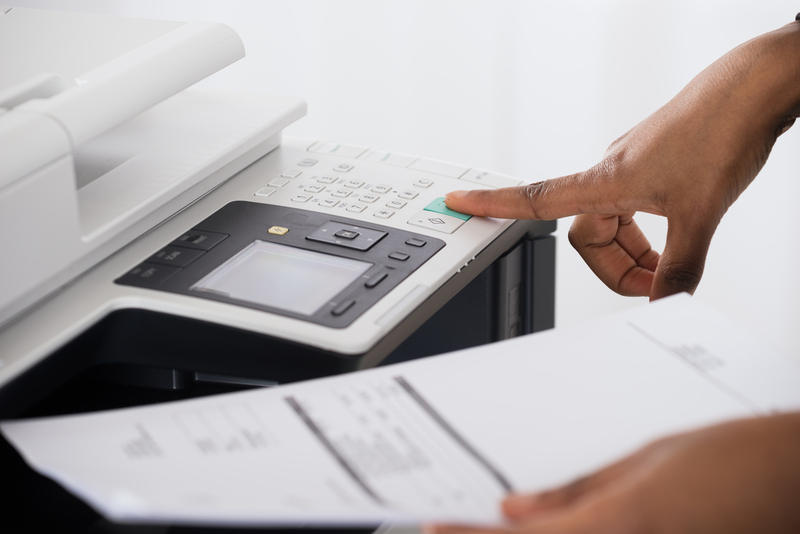Waste Not, Want Not: Avoiding Fines for Improper Disposal
Posted on 30/01/2025
When it comes to waste, the phrase "out of sight, out of mind" is all too common. Many people don't think about what happens to their garbage once the trash truck hauls it away. However, improper disposal of waste can have serious consequences not only for the environment, but also for our wallets. In fact, in some areas, individuals and businesses can face substantial fines for failing to properly dispose of their waste. It's crucial to understand the proper methods for waste disposal in order to avoid these potentially costly penalties.
The Consequences of Improper Waste Disposal
Improper waste disposal can have a negative impact on both the environment and human health. When waste is not disposed of correctly, it can end up in bodies of water or landfills where it can contaminate soil and water sources. This can lead to pollution and harm to plants and animals living in those areas.
In addition, certain items such as electronics and batteries contain hazardous materials that can be harmful if not disposed of properly. The chemicals from these items can leach into the ground and contaminate groundwater or be released into the air when burned, causing harm to human health.
Aside from the environmental concerns, improper waste disposal also poses financial risks. In many areas, there are laws and regulations in place that require specific methods for disposing of various types of waste. Failure to comply with these regulations can result in fines and penalties ranging from hundreds to thousands of dollars.

The Dos and Don'ts of Proper Waste Disposal
To avoid potential fines and protect the environment, here are some important dos and don'ts to keep in mind when disposing of your waste:
- DO: Separate recyclable materials from non-recyclable ones before disposal. Many municipalities have recycling programs that require residents to sort their waste before it is collected.
- DO: Dispose of hazardous materials such as batteries, electronics, and chemicals at designated collection sites. These items require special handling and should not be thrown in the regular trash.
- DO: Compost organic waste, such as food scraps and yard trimmings, to reduce the amount of waste going to landfills.
- DON'T: Dump waste in unauthorized areas, including public spaces or private property. This is not only illegal but also harmful to the environment.
- DON'T: Burn trash in your backyard or open areas. This can release toxic chemicals into the air and is often against local laws.
- DON'T: Flush down items that can clog pipes, such as grease, oil, or feminine hygiene products. These can cause costly damages to sewage systems.
The Benefits of Proper Waste Disposal
Aside from avoiding fines and protecting the environment, there are many other benefits to properly disposing of waste. Recycling helps conserve natural resources and reduces pollution caused by extracting and processing raw materials. Composting organic waste can create nutrient-rich soil for gardening and landscaping, reducing the need for chemical fertilizers.
Proper waste disposal also supports the local economy by creating jobs in waste management industries. It also saves municipalities money by reducing the costs of cleaning up illegally disposed waste.
The Downfalls of Improper Waste Disposal
On the other hand, improper waste disposal can have far-reaching consequences. In addition to harm to the environment and potential financial penalties, it can also create health hazards for humans living in affected areas. It can lead to water contamination, air pollution, and even diseases from exposure to hazardous materials.
Moreover, improper waste disposal contributes to the global issue of climate change. Landfills produce a significant amount of methane, a greenhouse gas that contributes to global warming. This can have negative impacts on our planet's climate and ecosystems.

Takeaways
Proper waste disposal is crucial for protecting the environment, human health, and avoiding financial penalties. Remember these key takeaways:
- Separate recyclable materials from non-recyclable ones.
- Dispose of hazardous materials properly at designated collection sites.
- Compost organic waste to reduce the amount of waste going to landfills.
- Avoid dumping waste in unauthorized areas or burning it in open spaces.
- Do not flush items that can clog pipes.
Conclusion
Waste not, want not. This old proverb takes on a whole new meaning when it comes to proper waste disposal. It's important to understand the consequences of improper waste disposal and make conscious efforts to dispose of waste in a responsible manner. By following the dos and don'ts outlined in this article, we can help protect the environment, prevent health hazards, and avoid fines for improper disposal. Let's all do our part in reducing waste and creating a cleaner future for generations to come.

 020 3744 5866
020 3744 5866












